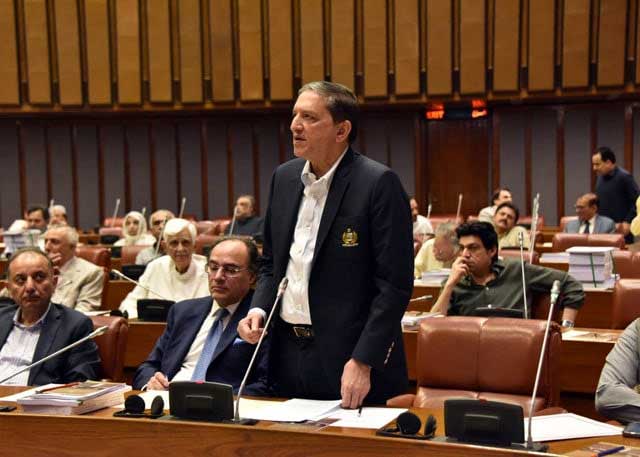Eid-e-Ghadeer, celebrated on the 18th of Zilhijjah, marks a monumental event in Islamic history. It commemorates the day when Prophet Muhammad (SAAW) declared Hazrat Ali (AS) as his successor at a place called Ghadeer Khum. This event holds profound importance, particularly within the Shia Muslim community, as it represents the divine appointment of Hazrat Ali (AS) as the leader of the Muslim Ummah after the Prophet (PBUH).
The Historical Context
The event took place in the year 632 CE, during the Prophet’s (SAAW) final pilgrimage to Mecca, known as the Farewell Pilgrimage. This pilgrimage was significant as it provided the Prophet (SAAW) an opportunity to convey his final public sermon and impart crucial teachings to a large gathering of Muslims. After completing the Hajj rituals, the Prophet (SAAW) and his companions were returning to Medina. On their way, they reached a place called Ghadeer Khum, located near present-day Al-Juhfa. It was at this juncture that the Prophet (SAAW) received a divine revelation instructing him to make an important announcement.
Ghadeer Khum was strategically chosen for its location. It served as a crossroads where pilgrims from different regions would part ways to return to their respective homes. The timing and location ensured that the message would reach a diverse and widespread audience, thereby amplifying its significance.
The Declaration at Ghadeer Khum
According to numerous historical and religious sources, Prophet Muhammad (SAAW) halted the caravan and gathered the pilgrims. He delivered a sermon in which he praised Allah and reminded the people of his own efforts in conveying the divine message. Then, taking Hazrat Ali (AS) by the hand, he raised it and declared:
“Man kuntu mawlahu fa Aliyyun mawlahu.”
This phrase translates to “For whomever I am his leader, Ali is his leader.” The declaration was not just a statement of friendship or affection but a clear indication of Hazrat Ali’s (AS) leadership and authority over the Muslim community.
The Prophet’s (SAAW) proclamation at Ghadeer Khum is supported by various hadiths (sayings of the Prophet) and historical records, including those documented by prominent scholars from both Sunni and Shia traditions. The event is considered by Shia Muslims as a divine mandate, underscoring the importance of divinely appointed leadership in safeguarding the faith and guiding the Muslim community.
Significance in Shia Islam
For Shia Muslims, Eid-e-Ghadeer is more than a historical event; it is a foundational moment that defines their understanding of Islamic leadership. They believe that the Prophet’s (SAAW) declaration at Ghadeer Khum was a divine mandate establishing the Imamate, with Hazrat Ali (AS) as the first Imam. This leadership succession is seen as crucial for the preservation and continuation of the true teachings of Islam.
The concept of Imamate is central to Shia theology. Imams are considered divinely appointed leaders who possess both spiritual and temporal authority. They are seen as the protectors and interpreters of the Quran and Sunnah, the teachings and practices of the Prophet (SAAW). Hazrat Ali (AS), being the first Imam, holds a revered position in Shia Islam. His appointment at Ghadeer Khum signifies the beginning of this divinely guided lineage of leaders.
Eid-e-Ghadeer is celebrated with great fervor and devotion. Shia Muslims organize gatherings where scholars and clerics recount the details of Ghadeer Khum and emphasize its theological and spiritual significance. Special prayers, feasts, and acts of charity are also common practices on this day. The event is marked by processions, recitations of poetry in praise of Hazrat Ali (AS), and public speeches that highlight the importance of adhering to the true teachings of Islam as conveyed by the Prophet (SAAW) and his rightful successors.
Sunni Perspective
While the event of Ghadeer Khum is recognized by Sunni Muslims, its interpretation differs. Sunni scholars acknowledge that the Prophet (SAAW) praised Hazrat Ali (AS) at Ghadeer Khum but argue that the declaration was more about recognizing his virtues and close relationship with the Prophet (SAAW) rather than a formal appointment of political or spiritual succession.
Sunni tradition holds that the Prophet’s (SAAW) companions collectively elected the caliphs who succeeded him, starting with Abu Bakr. This perspective emphasizes a more consultative approach to leadership, reflecting the consensus of the Muslim community. Nonetheless, the event of Ghadeer Khum is still regarded as an important historical moment that underscores the close bond between the Prophet (SAAW) and Hazrat Ali (AS).
Unity and Reflection
Eid-e-Ghadeer offers an opportunity for reflection on the unity and diversity within the Muslim community. Despite differing interpretations, the event underscores the importance of leadership, justice, and adherence to the Prophet’s (SAAW)teachings. It serves as a reminder of the shared history and the common values that bind Muslims together.
The occasion also highlights the necessity of respectful dialogue and mutual understanding among different Islamic sects. While theological differences exist, the core principles of faith, devotion to Allah, and the love and respect for the Prophet (SAAW) and his family are shared across the Muslim world. Eid-e-Ghadeer can thus be a day of unity, where Muslims reaffirm their commitment to these shared values.
Celebrations and Traditions
In Shia-majority regions, Eid-e-Ghadeer is a public holiday marked by various cultural and religious activities. Mosques and community centers are adorned with lights and decorations. Families come together to celebrate, sharing festive meals and exchanging gifts. Charity plays a significant role, with many taking the opportunity to help those in need, reflecting the values of generosity and compassion exemplified by Hazrat Ali (AS).
Educational programs and seminars are organized to educate the younger generation about the significance of Ghadeer Khum. These programs often include recitations of the Quran, storytelling sessions about the life and virtues of Hazrat Ali (AS), and discussions on the principles of leadership and justice in Islam.
In brief Eid-e-Ghadeer remains a pivotal day in Islamic history, marking the declaration of Hazrat Ali’s (AS) leadership by Prophet Muhammad (SAAW). It highlights themes of succession, leadership, and divine guidance. For Shia Muslims, it is a day of immense spiritual significance, while for the broader Muslim community, it is an occasion to reflect on the legacy of the Prophet (SAAW) and the values he espoused.
As Muslims around the world commemorate Eid-e-Ghadeer, they are reminded of the importance of unity, faith, and the enduring principles of Islam that continue to guide their lives. The event of Ghadeer Khum, with its profound implications for Islamic leadership and community cohesion, serves as a lasting testament to the Prophet’s (SAAW) efforts to ensure the guidance and well-being of the Muslim Ummah.
Eid-e-Ghadeer: A pivotal event in Islamic history




